In 2024, Northern Ireland’s labour market demonstrated strength and resilience, with the employment rate reaching record highs in the latter part of the year. Hiring activity has remained steady throughout the last 12 months, with skills shortages driving competition for talent.
Understanding what jobseekers value most – such as salary, benefits, and work-life balance – is essential for employers. These insights are key to shaping recruitment, employer branding, and retention strategies, giving businesses a competitive edge.
The NIJobs salary and benefits guide offers salary benchmarks and benefits data across key industries, providing clarity on market expectations. For employers, it’s a critical resource to refine hiring strategies; for jobseekers, it offers transparency into potential salaries and benefits. In today’s competitive market, leveraging these insights will help businesses secure top talent for 2025 and beyond.

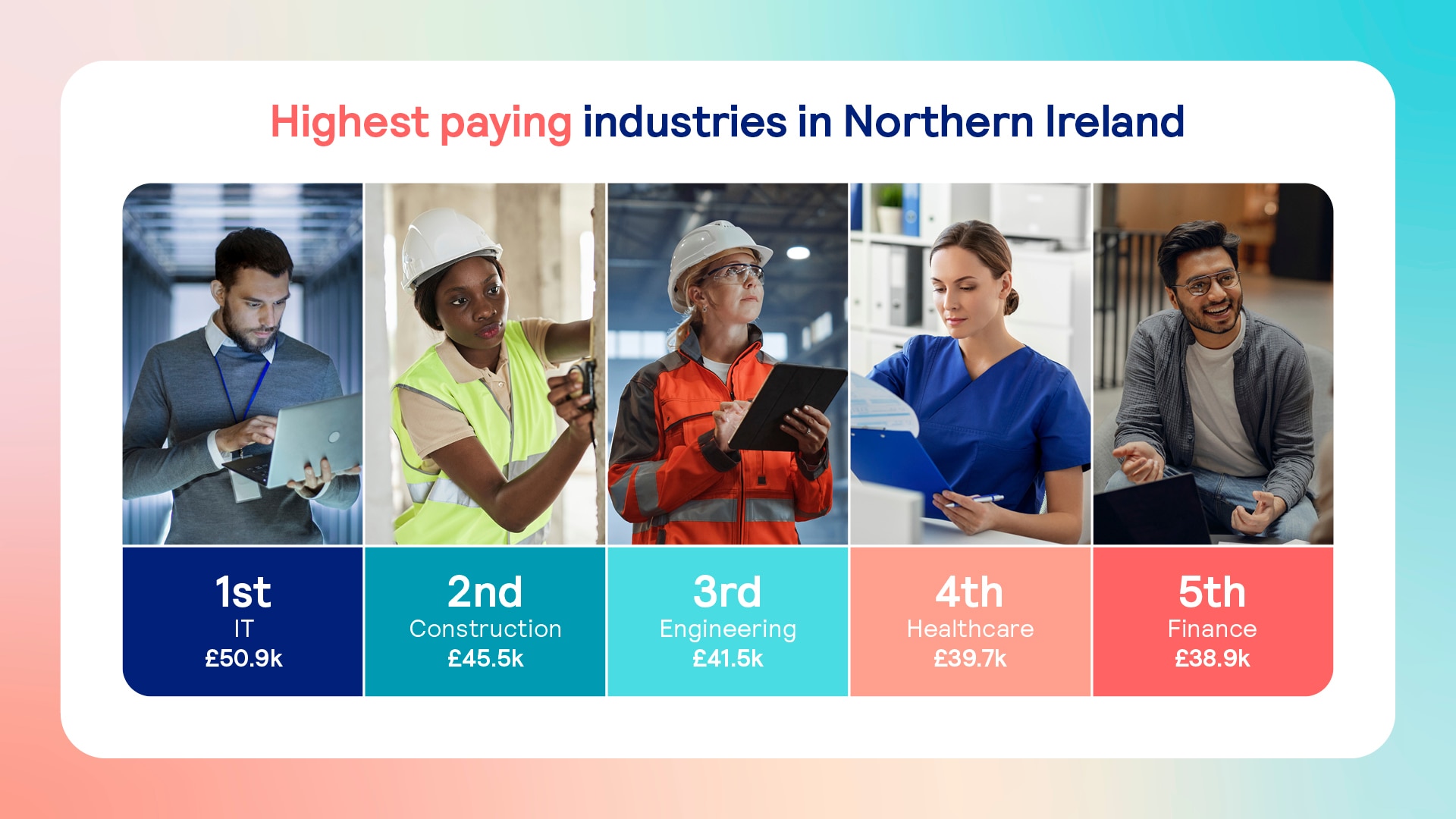
Top paying industries
IT
The IT industry continues to be the highest-paying industry in Northern Ireland, with an average salary of £50.9k. Key in-demand roles such as DevOps Engineer (£63,448) and Java Developer (£57,830) command some of the highest salaries in the field. Other well-paid positions include Data Engineer (£53,320) and QA Engineer (£51,333), reflecting the growing demand for specialised tech skills.
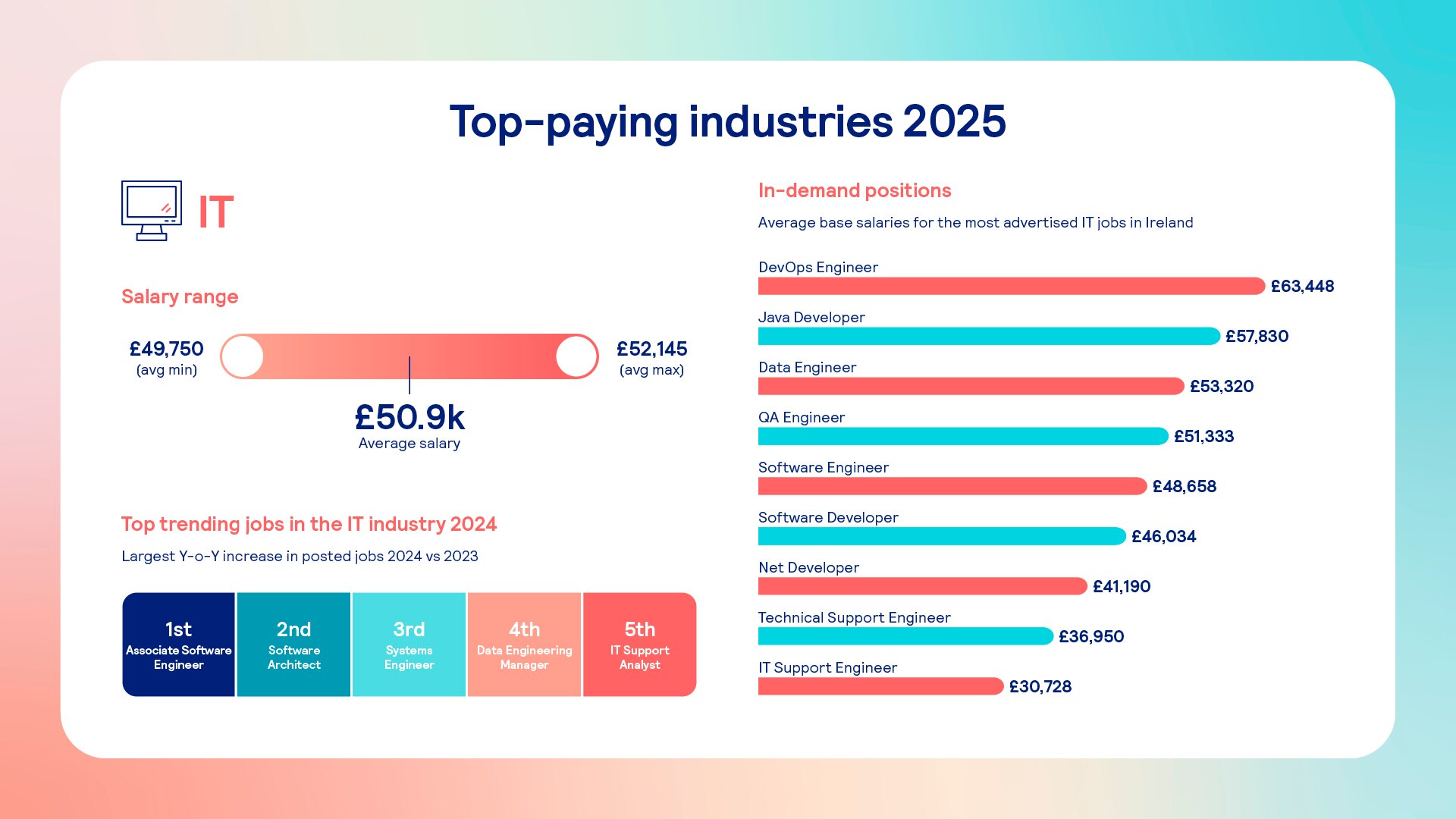
Construction
The construction industry remains one of the top-paying sectors in Northern Ireland with an average salary of £45.5k. Senior Quantity Surveyors (£63,987) and Site Managers (£51,210) are among the highest-paid professionals in the field, reflecting the need for experienced personnel to oversee large scale projects. Other well-compensated roles include Health & Safety Manager (£50,590) and Quantity Surveyor (£48,172), highlighting the industry’s focus on risk management and cost efficiency.
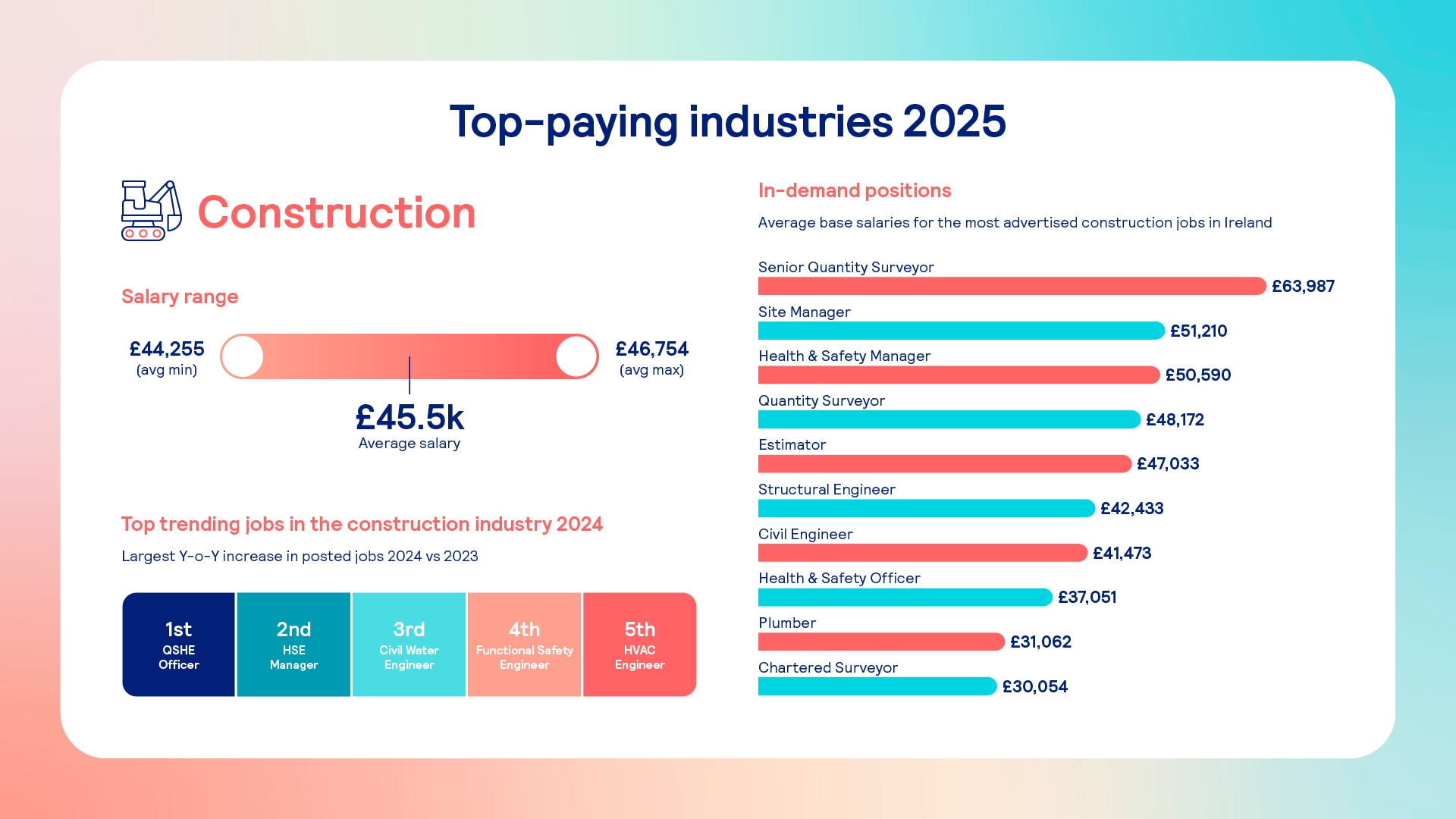
Engineering
The engineering industry remains a high-paying sector in Northern Ireland, with an average salary of £41.4k. Engineering Managers (£60,591) earn the highest salaries, reflecting the value of leadership in overseeing projects and technical teams. Other well-paid roles include Electrical Design Engineer (£44,891) and Mechanical Design Engineer (£42,231), highlighting the demand for specialised expertise in design and innovation. Maintenance Engineers (£41,873) and Electrical Engineers (£39,933) also command competitive salaries, reinforcing the need for professionals who can maintain and optimise complex systems.
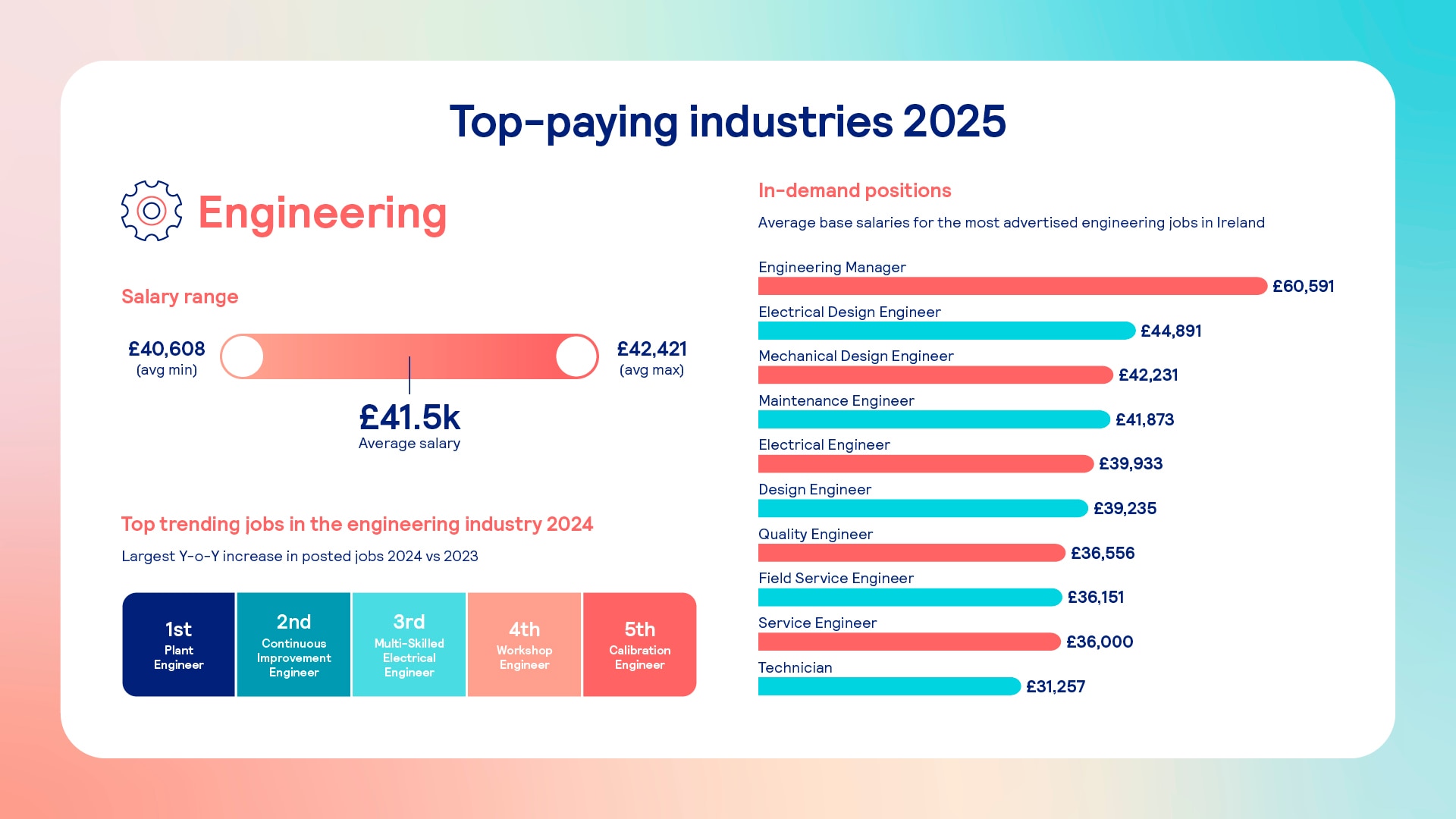
Healthcare
The healthcare industry continues to be a vital and well-compensated sector in Northern Ireland, with an average salary of £39.7k. Nurse Managers (£54,822) earn the highest salaries, reflecting the leadership and organsiational skills required to oversee healthcare teams. Registered Nurses (£48,669) and Physiotherapists (£30,774) also command competitive salaries, highlighting the essential role of patient care and rehabilitation. Other well-paid roles include Staff Nurse (£39,238) and Occupational Therapist (£36,284), showcasing the growing demand for both general and specialised healthcare professionals.
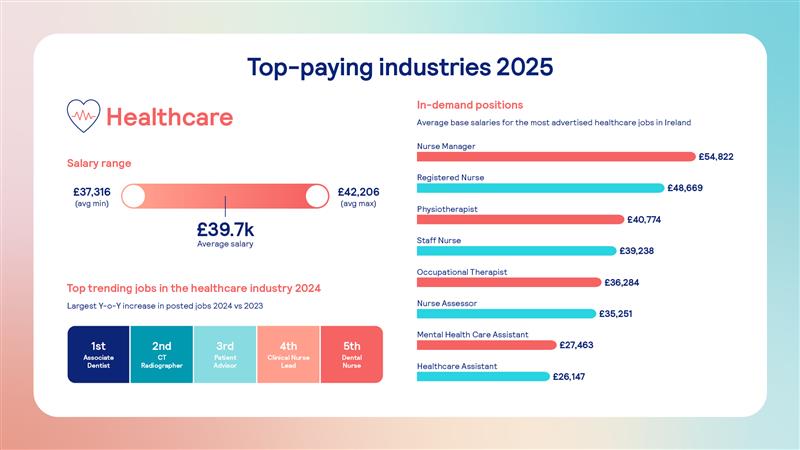
Finance
The finance industry remains a key sector in Northern Ireland, offering an average salary of £38.9k. Senior leadership roles such as Head of Finance (£62,222) and Finance Business Partner (£51,799) command the highest salaries, reflecting the demand for strategic financial oversight. Finance Managers (£49,536) and Finance Analysts (£36,940) also earn competitive salaries, highlighting the need for professionals skilled in financial planning and data-driven decision-making. Compliance Officers (£36,198) play a crucial role in regulatory adherence, further demonstrating the industry’s focus on governance and risk management.

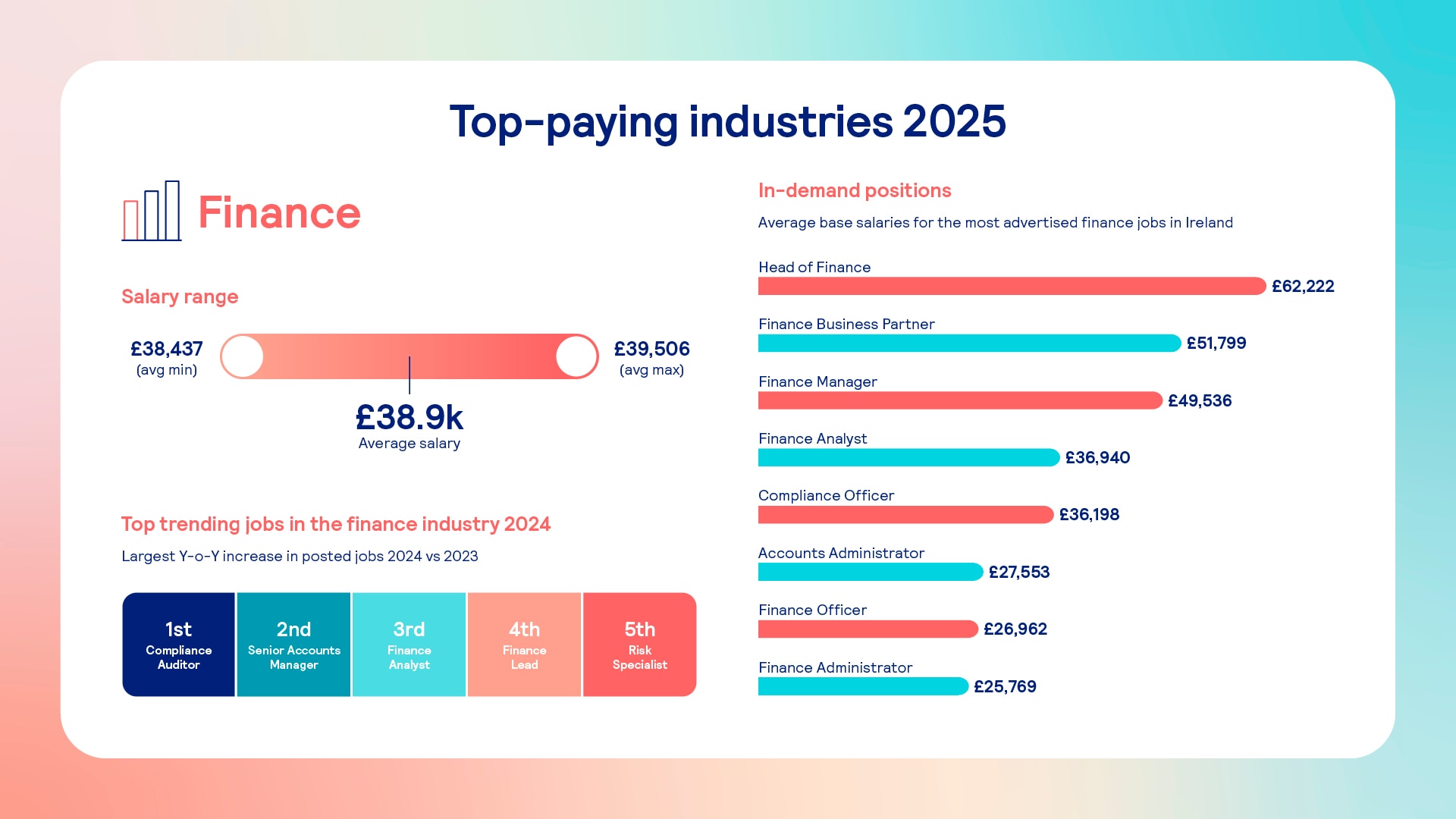
Top workplace benefits of 2025: what jobseekers value most
As competition for top talent intensifies in Northern Ireland, businesses are focusing on offering compelling benefits to attract and retain employees. According to the latest insights, pension schemes have emerged as the most valued workplace benefit, underscoring employees’ prioritisation of long-term financial security.
Free parking takes the second spot, highlighting the ongoing costs and challenges associated with commuting, particularly in urban areas. Career development ranks third, reflecting employees’ increasing focus on professional growth and advancement opportunities within their organisations.
Flexible working arrangements, including work and adaptable hours, remain a key priority in fourth place, reinforcing the demand for a better work-life balance. Finally, life assurance secures the fifth spot, demonstrating the importance employees place on financial protection and security for themselves and their families.
These trends indicate a growing emphasis on both financial stability and workplace flexibility, aligning with the evolving expectations of Northern Ireland’s workforce.

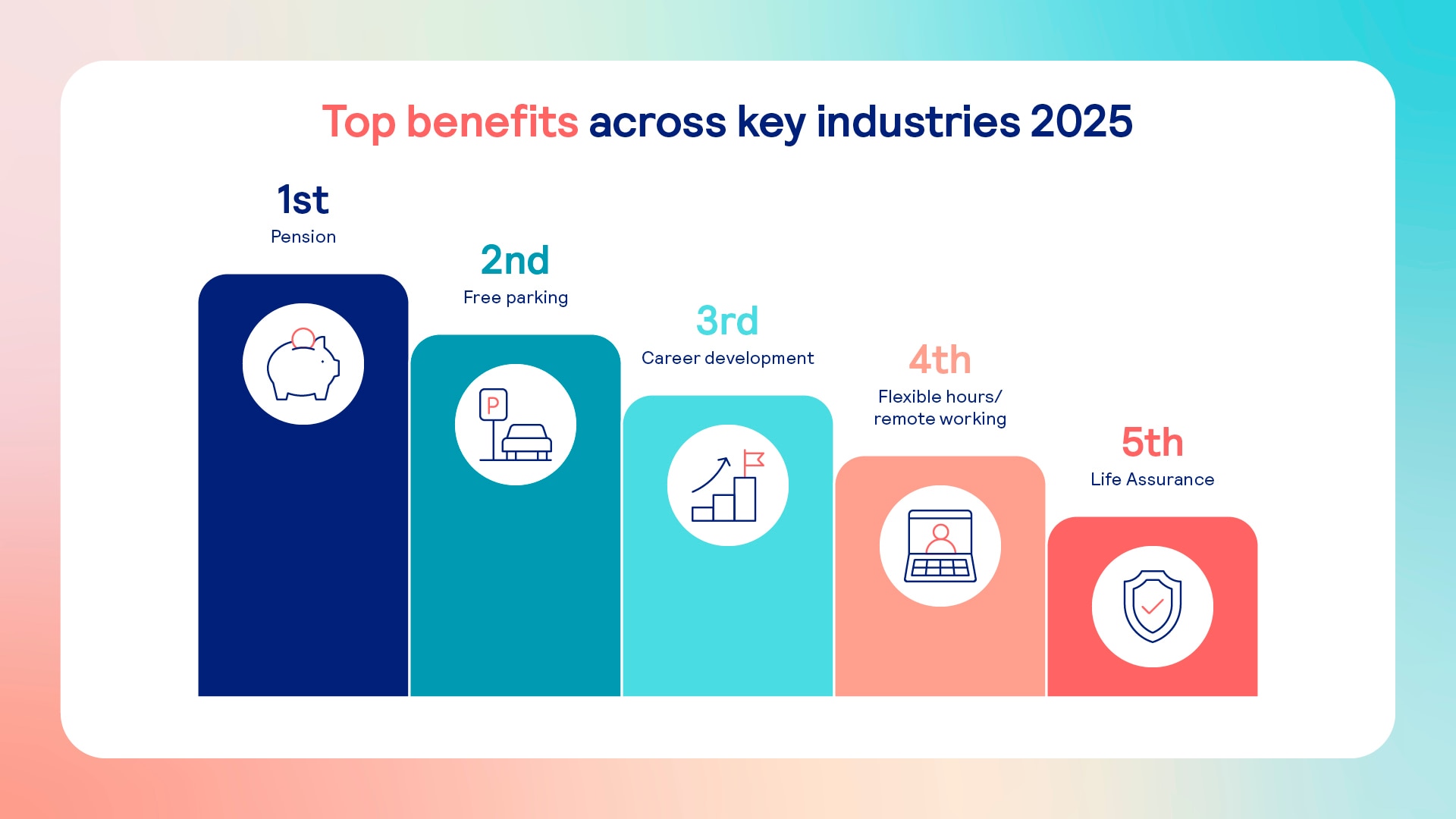
Industry highlights
In 2025, industries are experiencing notable shifts in salaries and workforce demands across various sectors. Want to explore the latest trends in other industries including Accountancy, Manufacturing, Logistics, Retail, Social Care, and Sales?
What employers need to do to stay competitive
Building an effective compensation strategy involves planning and attention to detail. While it may seem like a lengthy task, it provides a framework for achieving organisational goals, enhancing employee engagement, and managing budgets. Below are key steps to implement a comprehensive plan:
Align with organisational goals: Your compensation strategy should directly support broader goals like attracting top talent, retaining employees, and improving performance. A clear link between compensation and organisational objectives ensures a focused and strategic approach.
Balance costs and culture: Ensure your strategy is financially sustainable and fits your company culture. Equal pay, budget constraints, and long-term financial goals must be accounted for to maintain trust and stability.
Review roles and market trends: Regularly update job descriptions and analyse market benchmarks using industry reports and salary surveys. Competitive and fair compensation packages help attract and retain talent without unnecessary costs.
Engage employees: Gather employee feedback to understand their expectations and identify gaps in current offerings. Involving employees in the process encourages trust and ensures your strategy aligns with workforce needs.
Define and communicate principles: Set clear compensation principles, such as equity, performance-based rewards, and transparency. Open communication about how pay decisions are made builds employee confidence and clarifies pathways for salary increases.
Design a clear structure: Create a framework that includes base salaries, bonuses, benefits, and incentives. Use industry benchmarks to establish salary ranges and ensure equal pay for roles for equal value.
Link performance to pay: Tie compensation to individual and team performance using a robust management system. This approach motivates employees and aligns their efforts with organisational goals.
Monitor, evaluate, and stay compliant: Regularly review your compensation strategy using metrics like turnover rates and employee feedback. Adapt as needed to stay competitive while ensuring compliance with employment laws, including equal pay legislation.
